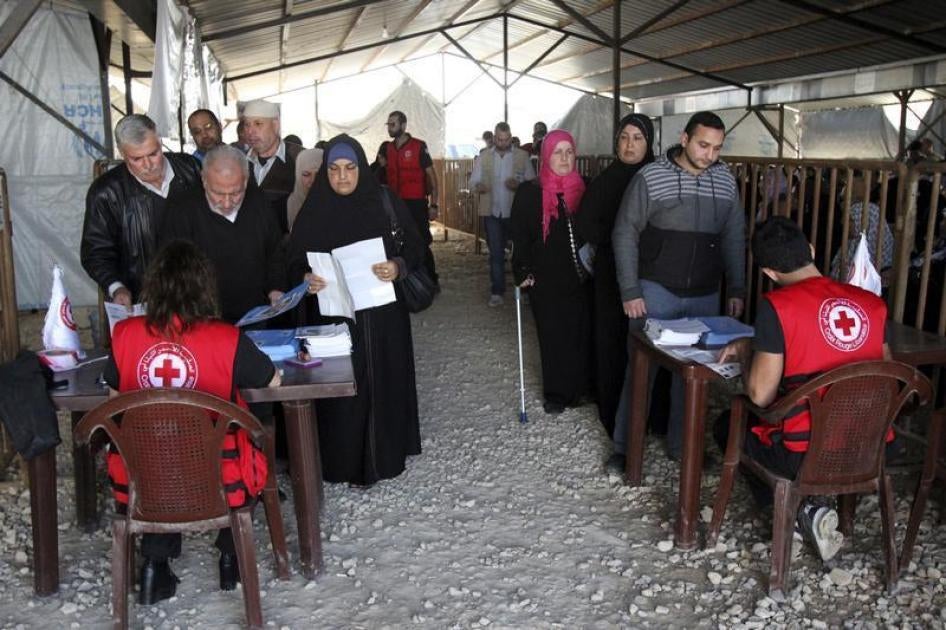In the wake of the horrific attacks in Paris, many people are reeling and, understandably, afraid. That fear has apparently driven more than two dozen United States governors to a race to the bottom as they scramble to block Syrian refugees from being resettled in their states.
Fear is powerful – but so is the truth. The governors say they don’t want to allow Syrian refugees in their states until they can be assured that the refugee vetting process is adequate and “proper security measures are in place.”
They should rest assured.
Refugees being resettled in the US undergo a rigorous vetting process that can take several years, and they are the most stringently screened of any group allowed to enter the country. First, they are registered and interviewed by the Office of the United Nations High Commissioner for Refugees (UNHCR) in countries like Jordan, Lebanon, and Turkey, which then refers a small number for potential resettlement to the US. The State Department has characterized UNHCR’s referral process as “extraordinarily cautious” owing to the high security bar for US admission.
For those that UNHCR does refer to the US — only 18,000 of the world’s 4.2 million Syrian refugees have made it into that pipeline — the Department of Homeland Security conducts a battery of background checks and in-person interviews in partnership with the State Department, Defense Department, National Counterterrorism Center, Federal Bureau of Investigation, and intelligence agencies, with an additional country-specific layer of review specifically for Syrian applicants. By the time this process is complete for any individual candidate, several years have likely passed.
This long process means that the 10,000 Syrian refugees that President Barack Obama has committed to resettle in 2016 have likely been in process for years. And while they’ve been waiting, they’ve become increasingly desperate as the first countries they fled to buckle under the strain of admitting so many in need of urgent protection.
In June, I talked to over 100 Syrian refugees living in Turkey. Some planned to take the risky journey to Europe or dreamed of being resettled in the US after they found themselves empty-handed and destitute in their first place of refuge. More than 50 percent of Syrian refugees who have been referred to the US by UNHCR are children — children like 11-year-old Ali, whose small body was mangled in 2012 by the same barrel bomb that killed his younger sister, 14-year-old Khamleen, who was bright, chatty, and obsessed with Korean pop music, and 11-year-old Radwan, who worked 12 hours a day, six days a week at a tailor’s workshop to provide for his widowed mother.
These children and their parents were driven from their homeland. They already know rejection and fear. Now, they wait in unstable circumstances for a glimmer of hope. The US has the opportunity to provide them with more security. There will always be a risk involved in any immigration process, and the risk present in refugee resettlement is real. But the US government’s stringent and careful measures to mitigate that risk are also real.
It’s that fact — not fear — which should govern the US response in this time of crisis.









